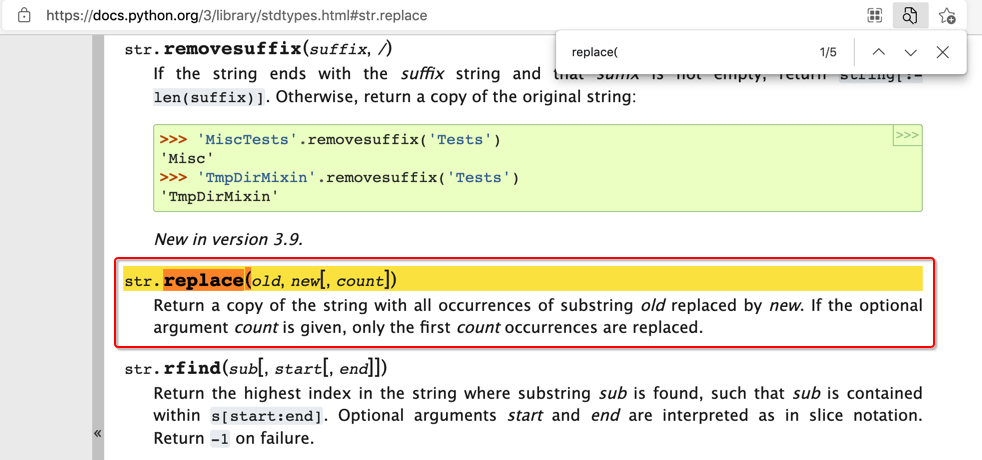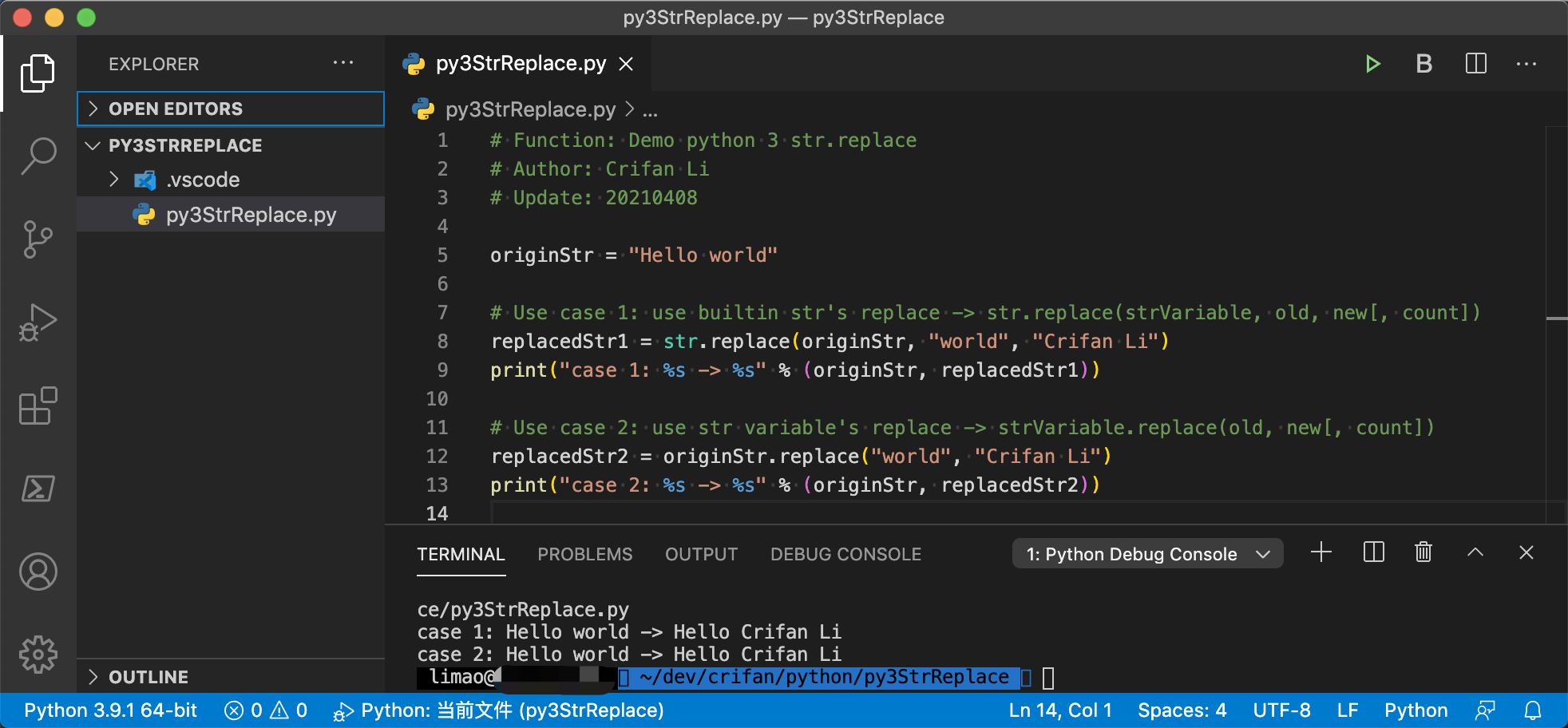str.replace
Python中用来实现字符串替换的是str.replace
- 语法
- 官网文档
Python 3- https://docs.python.org/3/library/stdtypes.html#str.replace

str.replace(old, new[, count])
Return a copy of the string with all occurrences of substring old replaced by new. If the optional argument count is given, only the first count occurrences are replaced
- https://docs.python.org/3/library/stdtypes.html#str.replace
- 对比:
Python 2的官网文档,解释也基本类似:- https://docs.python.org/2/library/stdtypes.html#str.replace

str.replace(old, new[, count])
Return a copy of the string with all occurrences of substring old replaced by new. If the optional argument count is given, only the first count occurrences are replaced
- https://docs.python.org/2/library/stdtypes.html#str.replace
- 官网文档
对应着,VSCode中的语法提示是:

对应着,常见的,具体的用法,有2种:
- 使用方式1:直接用str的replace,即:
str.replace(strVariable, old, new[, count])replacedStr1 = str.replace(originStr, "from", "to") - 使用方式2:用字符串变量,即:
strVariable.replace(old, new[, count])replacedStr2 = originStr.replace("from", "to")
完整demo代码:
# Function: Demo python 3 str.replace
# Author: Crifan Li
# Update: 20210408
originStr = "Hello world"
# Use case 1: use builtin str's replace -> str.replace(strVariable, old, new[, count])
replacedStr1 = str.replace(originStr, "world", "Crifan Li")
print("case 1: %s -> %s" % (originStr, replacedStr1))
# Use case 2: use str variable's replace -> strVariable.replace(old, new[, count])
replacedStr2 = originStr.replace("world", "Crifan Li")
print("case 2: %s -> %s" % (originStr, replacedStr2))
输出:
case 1: Hello world -> Hello Crifan Li
case 2: Hello world -> Hello Crifan Li
效果:

str.replace中的old和new,不支持正则的语法
所以之前的代码:
sortedUrlList.sort(key=str.replace("^https?://", "", ))
虽然能运行,但是逻辑不对。只是把"^https?://"当成了普通字符串而已 -》没有实现希望的正则替换的效果